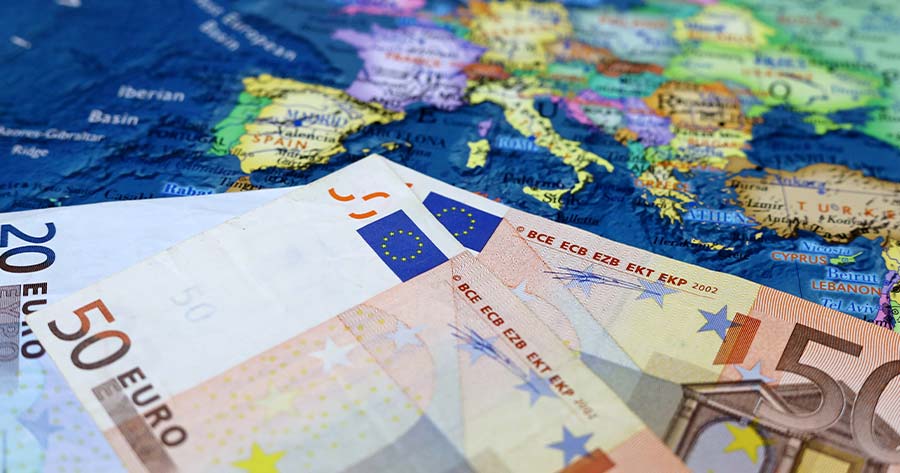Euro zone business activity grew more rapidly than expected in October, as new orders reached their fastest pace in two and a half years, signaling renewed momentum for the bloc’s economy at the outset of the final quarter.
Compiled by S&P Global, the HCOB Flash Eurozone Composite PMI climbed to 52.2 in October from 51.2 the previous month. This marked the tenth month in a row of expanding activity and the highest level in 17 months, surpassing Reuters’ consensus forecast, which had anticipated a decrease to 51.0.
Adrian Prettejohn at Capital Economics commented that the preliminary October PMIs point to a slight improvement in the euro zone economy as the fourth quarter begins. However, divergent trends within the region were mentioned, with stark differences between Germany and France.
For France, business activity contracted at a steeper rate than anticipated as demand for goods and services continued to weaken amid ongoing political turbulence. Conversely, Germany, the euro zone’s largest economy, saw its private sector expand at the fastest rate in nearly two and a half years, led by a surge in services activity. This robust performance in Germany provided support for the euro.
In the U.K., manufacturing displayed early signs of recovery, and price pressures continued to ease. Despite these positive signals, businesses remained cautious ahead of the government’s upcoming budget announcement.
The euro zone’s expansion was driven primarily by the services sector, with the services PMI reaching 52.6 in October—its highest in 14 months and ahead of expectations. The manufacturing sector also saw a marginal acceleration in output at 51.1, compared to 50.9 in September, while the broader manufacturing PMI edged up to 50.0, surpassing forecasts of no monthly change.
Employment resumed growth in October, overturning September’s marginal dip. Job creation was strongest in the services sector, which recorded its fastest increase since June 2024. Meanwhile, manufacturers reduced staffing at the quickest pace in four months in response to softer demand.
While the pace of overall operating cost increases slowed slightly, companies elected to raise their prices at a modestly quicker rate. According to Cyrus de la Rubia, chief economist at Hamburg Commercial Bank, inflation within the services sector remains moderate; although sales price inflation edged higher, it remains near the historical average.
A rising majority of economists surveyed by Reuters believe the European Central Bank has concluded its interest rate cuts, with inflation stabilizing near the 2% target and the economy maintaining steady progress.
Despite the uptick in business activity, confidence in the business outlook slipped to a five-month low, indicating that firms remain wary regarding future prospects.





